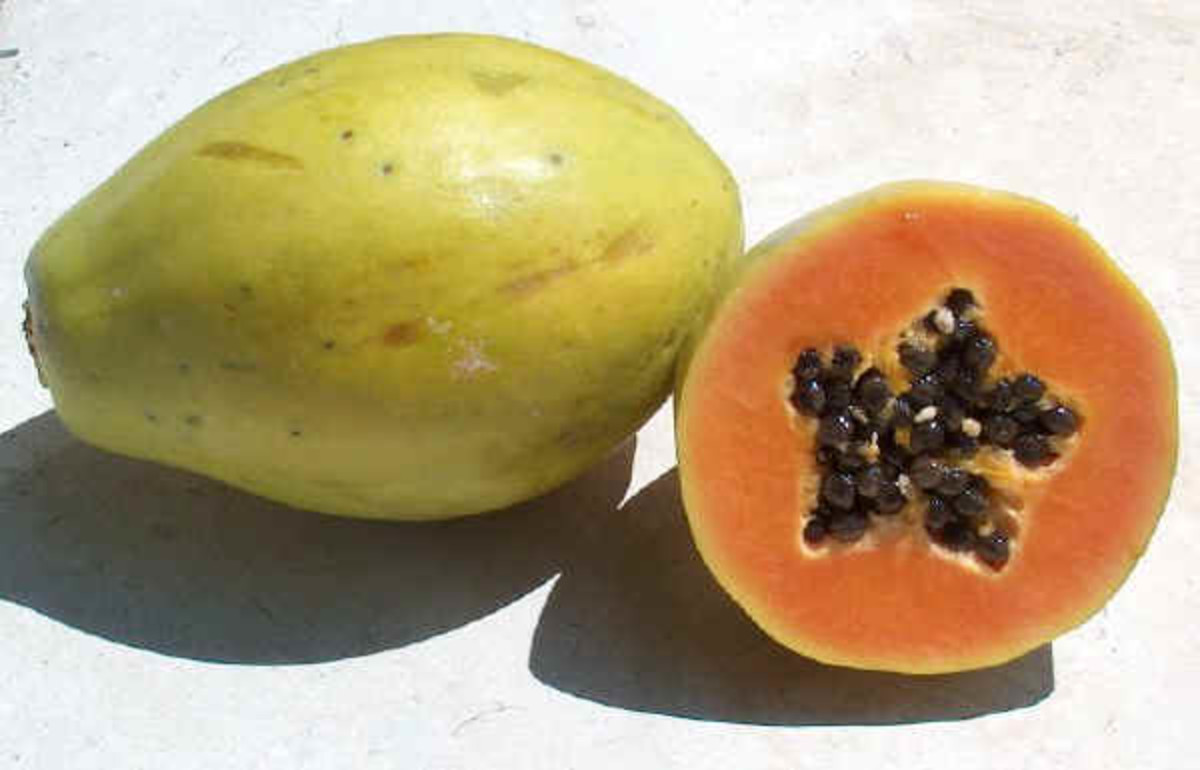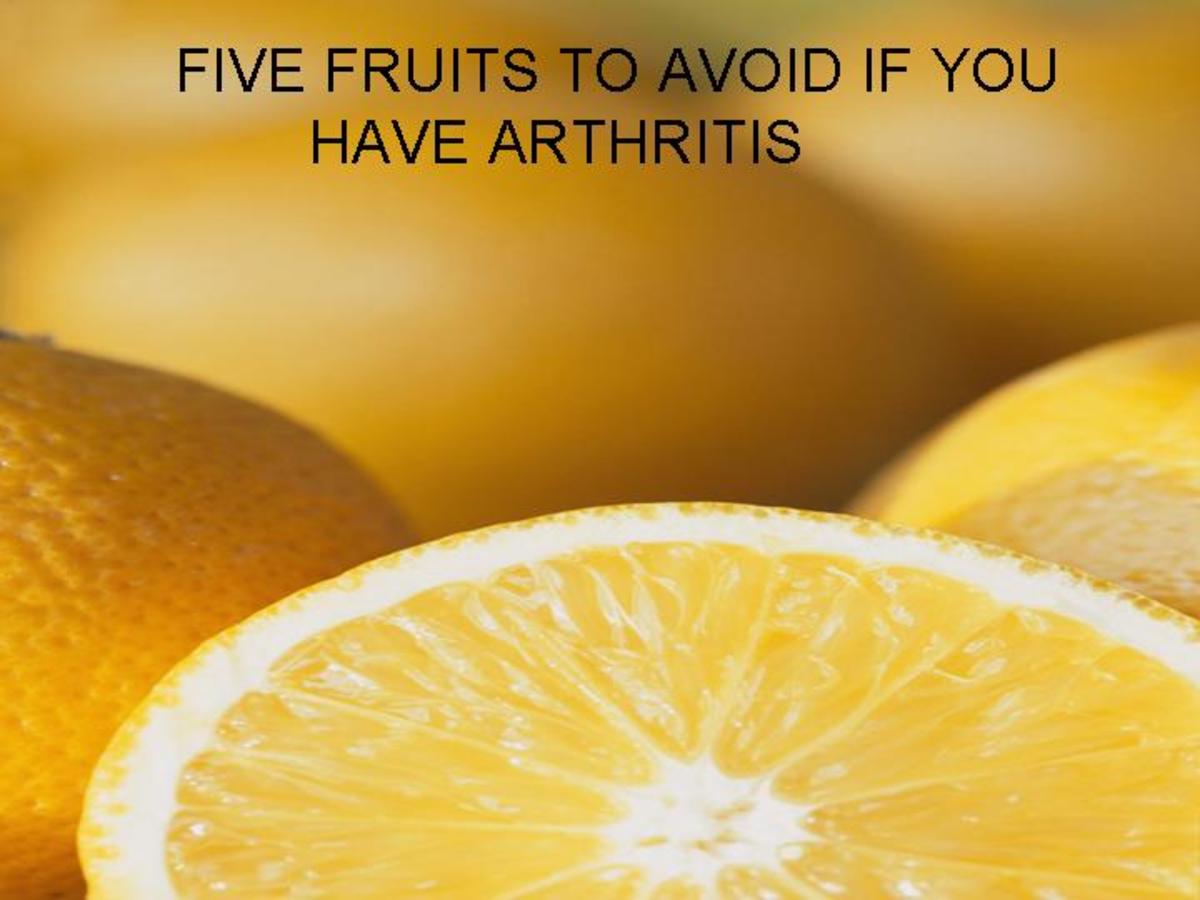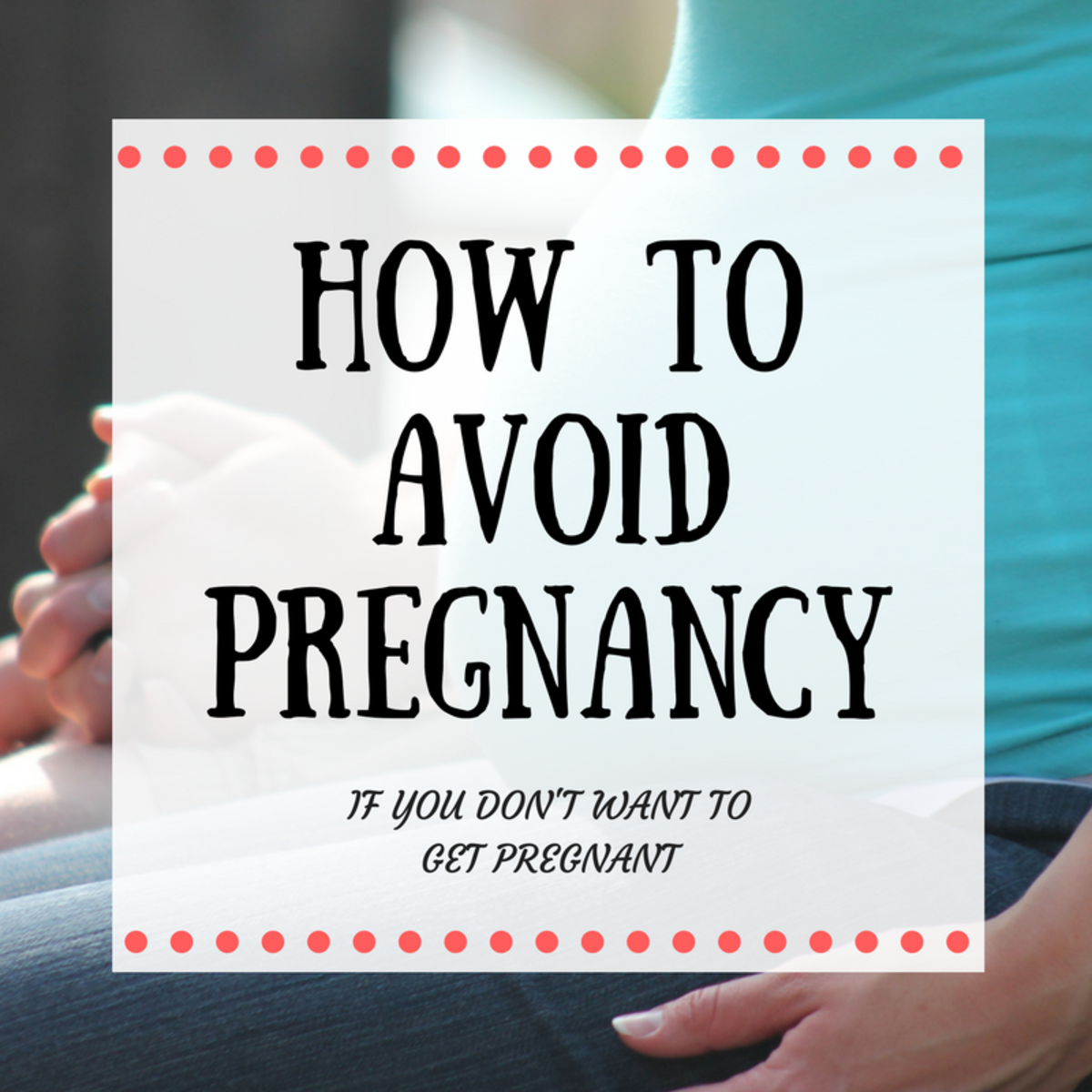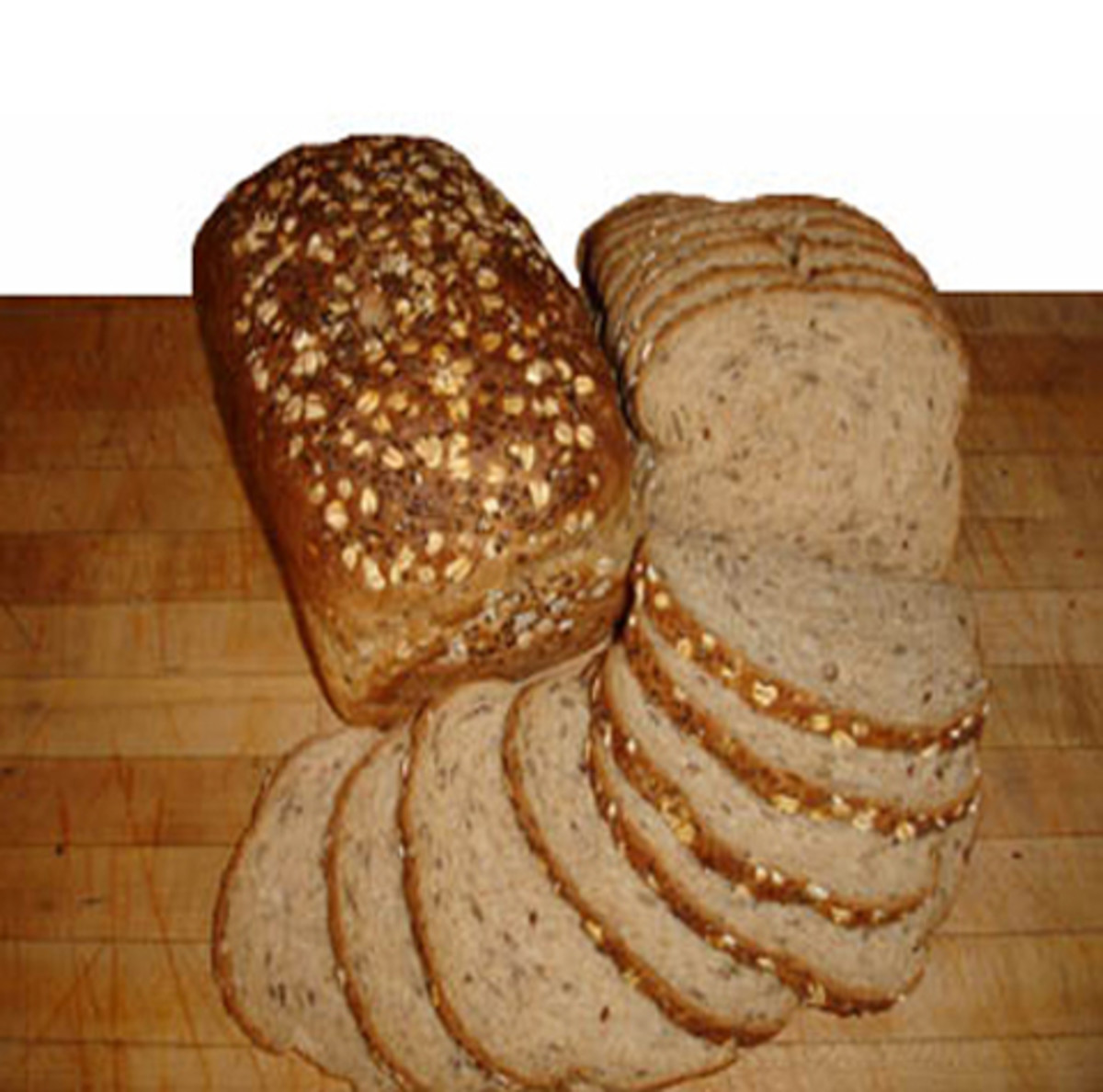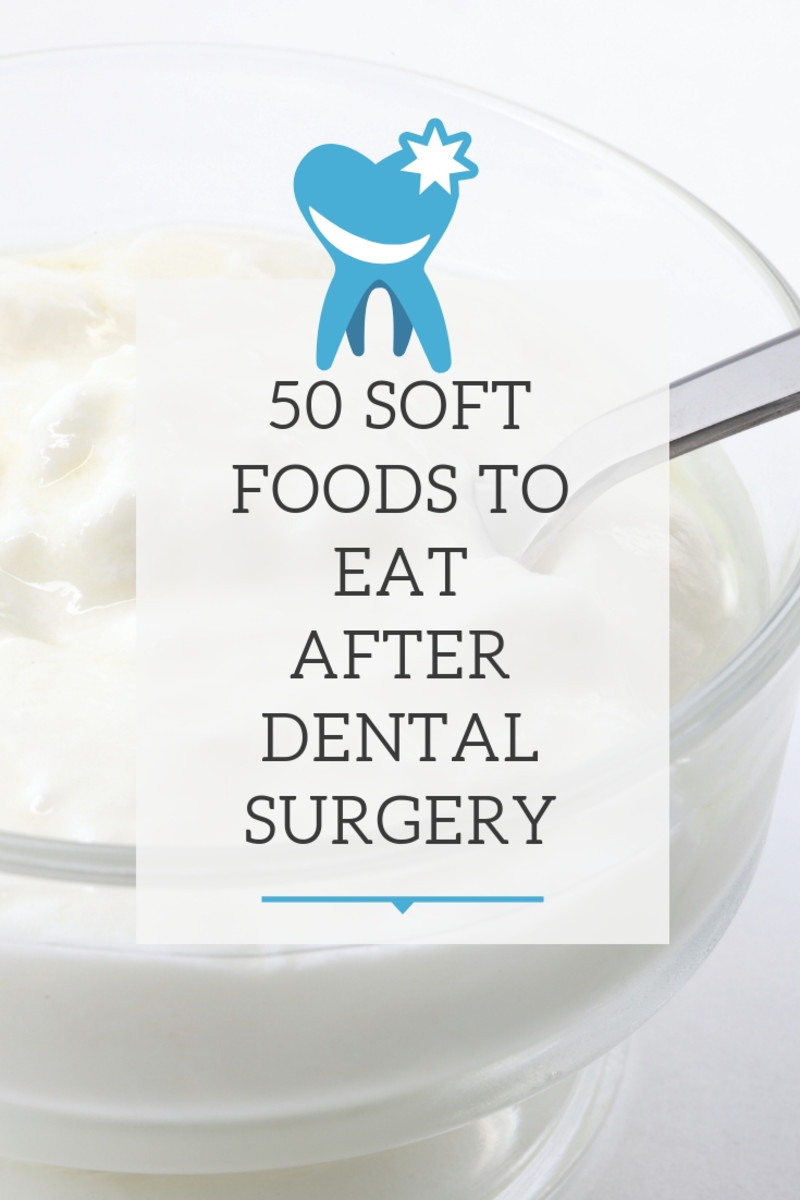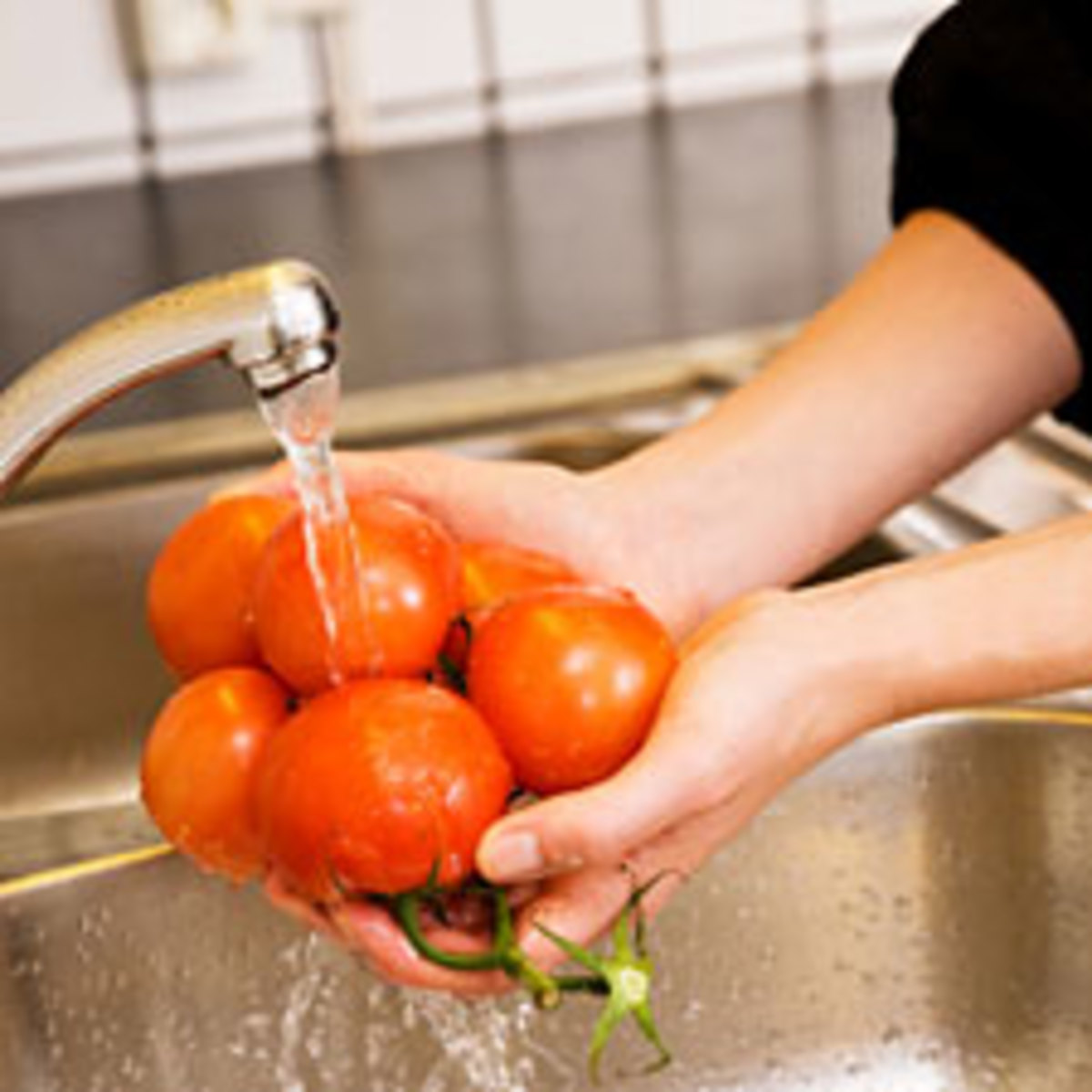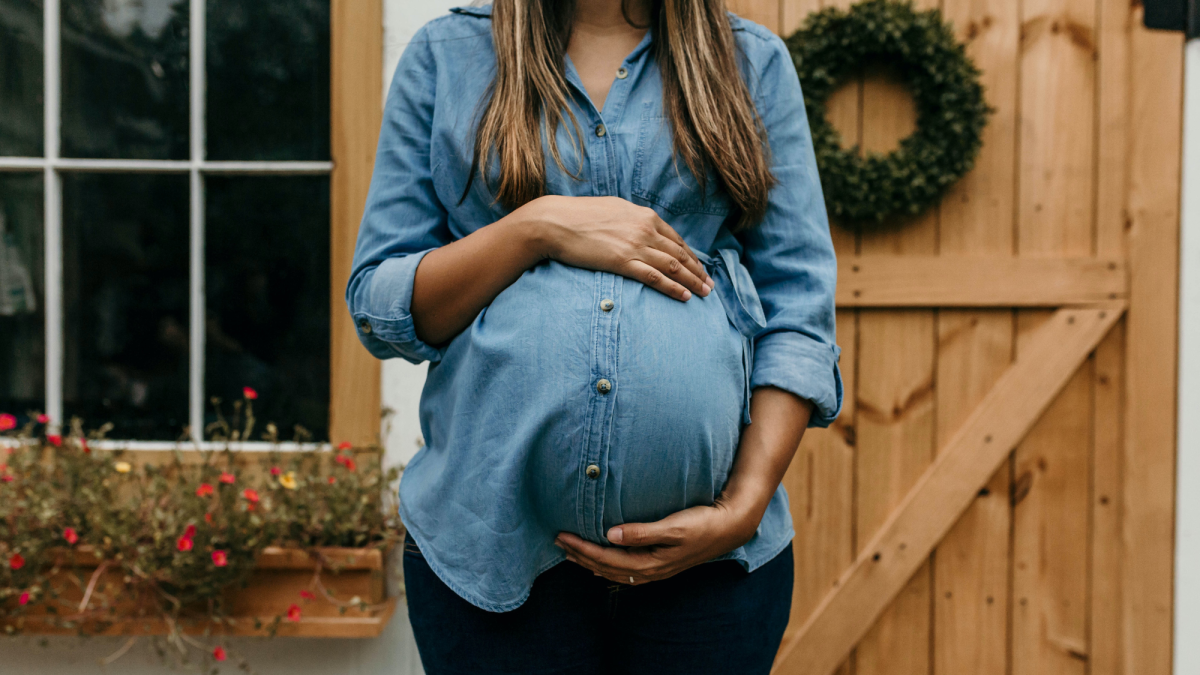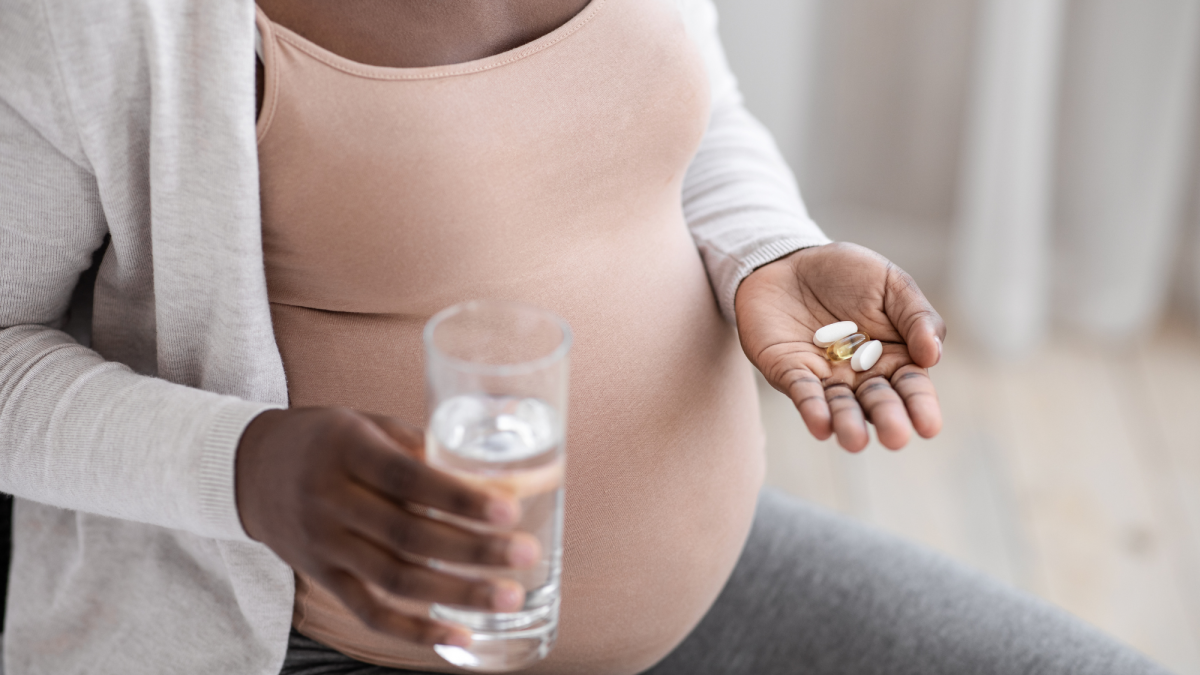- HubPages»
- Health»
- Women's Health»
- Pregnancy
Iron Rich Foods to Eat When You're Pregnant for Maximum Absorption
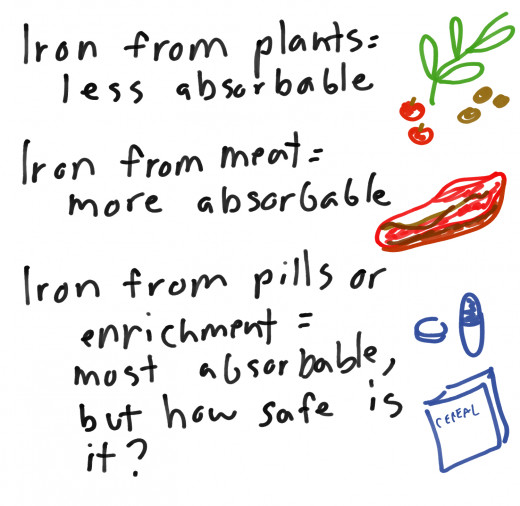
If you're pregnant and worried about getting enough iron to your baby and perhaps developing iron-deficiency anemia yourself, then you may be looking for ways to get enough iron in your diet. Dietary iron from food, especially meat, is absorbed readily by your body when you're pregnant and helps carry oxygen to your baby.
Prenatal vitamins usually have at least the amount that the National Institutes of Health recommend pregnant women get daily: 27 mg of iron.Taking the iron in the prenatal vitamin is often advised on top of eating foods high in iron. But you should talk to your doctor about the correct amount of iron intake when you're pregnant. There is current research out that is challenging the notion that taking iron supplements is helpful during pregnancy. I, myself, took iron supplements when I was pregnant without apparent issue. But I am married to a man with an iron overload condition, and I have become sensitized to the potential problems some people may encounter in doing so. Always remember that iron is an essential, but also potentially toxic, mineral.
To Absorb or Not to Absorb, That is the Question?
When taken in the same meal...
The following compounds commonly present in food inhibit iron absorption:
- Calcium
- polyphenols
- phytates
...while these factors aid iron absorption:
- Vitamin C (ascorbic acid)
- Saturated fat
- heme iron (iron from meat) - that is, eating heme iron with a meal will increase your absorption of non-heme iron.
When You Eat Foods Rich in Iron...
When you eat foods rich in iron, pair the foods with orange juice, lemon juice, sweet peppers, cabbage, broccoli, and other foods high in vitamin c. Vitamin C, or ascorbic acid, aids your body in iron absorption, helping it absorb iron more efficiently sometimes even too efficiently.
And stay away from taking in milk products, soy products, coffee or tea at the same time as you eat foods high in iron, since these foods have minerals (most minerals, but especially calcium) that compete with iron for absorption.
Meat Sources of Iron
Eat beef, buffalo, veal, chicken, turkey, lamb, pork, egg yolk, and/or wild salmon as meat sources of iron during pregnancy. Meat sources of iron are important because meat has heme, a readily absorbed form of iron in comparison to iron from vegetable sources. Each ounce of beef tenderloin has a single milligram of iron.
Be careful and don't eat more fish than is recommended for pregnant women. Don't eat raw fish when you're pregnant. Avoid eating too much iron-rich seafood like oysters, clams, halibut, crab and shrimp, or check with your doctor about the safety of these items in your area. Eat limited amounts of tuna only.
Legume Sources of Iron
For iron rich legumes, eat kidney beans, lima beans, navy beans, pinto beans, soybeans and other soybean products like tofu, and especially lentils. A half cup of lentils has 3.3 mg of iron. Do remember that phytates reduce the bioavailability of iron, so the phytic acid in legumes and dal will inhibit absorption of the non-heme iron in beans.
Fruit and Vegetable Sources of Iron
During pregnancy, sweeten your foods with molasses, which has 3.5 mg of iron in a tablespoon.
Popeye knew what he was doing; spinach is one of the highest iron vegetables, with over 3 mg of iron in a half cup, cooked - though since spinach is also high in calcium and polyphenols, not all the iron is bioavailable. Spinach is an interesting food, filled with nutrients but with many chemical compounds that can inhibit absorption. There is some indication that the oxalic acid in spinach isn't what inhibits absorption.
Also eat plenty of the following fruits and veggies containing iron:
- tomatoes
- raspberries and other berries
- turnip greens, collard greens and mustard greens
- Brussels sprouts
- apricots
It's a Delicate Balance
Whatever way you decide to assure you get enough iron in your diet, please be careful to balance the need to "keep your iron up" with the need not to overdose on supplementation. Foods rich in iron can help with this a lot.
But do be conscious of how many phenols and phytates you're also getting when you eat all those "healthful" fruits, veggies, and beans, as they can hinder your mission to prevent anemia.
Calcium will also inhibit iron absorption, especially if taken at does of 500 mg or greater during meals. How do I know? Due to my husband's iron-overload condition, which is called hereditary hemochromatosis, we actually seek out agents to inhibit the bioavailability of the stuff). And of course, remember that achieving just the right iron status can be tricky, as pregnant women are highly variable in their iron needs.
© 2009 Chris Telden

